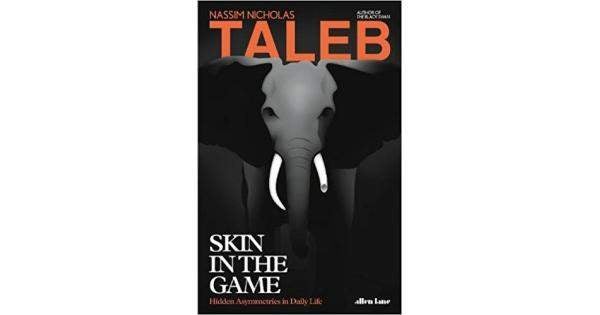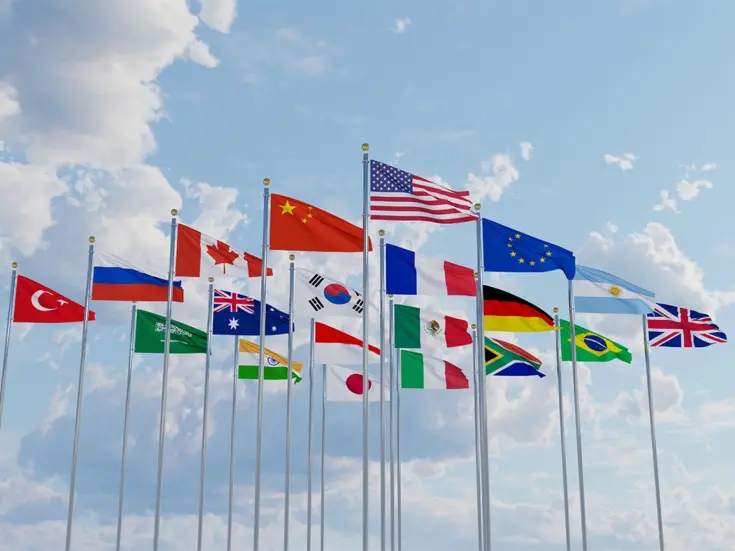
A forthright polemic on life and business, writes Christopher Silvester
For the Lebanese-American thinker Nassim Nicholas Taleb, a former financial derivatives trader, there is a clear division between the good guys and the bad guys. The good guys are the risk-takers, the entrepreneurs, anyone who starts a business and has skin in the game.
‘Do not pay attention to what people say, only to what they do,’ he writes, ‘and to how much of their necks they are putting on the line.’ Another aphorism borrows from the world of asset management, in which some clients like their managers to be aligned with them: ‘Don’t tell me what you think. Just tell me what is in your portfolio.’
The bad guys are the interventionistas, the IYIs (intellectual yet idiots), the rent-seekers, and the experts who transfer risk and harm to others. Oh, and in a cunning pre-emptive swipe he tells the reader he doesn’t think much of book reviewers, since we too don’t have sufficient skin in the game.
A favourite put-down of Taleb’s is to cite the example of Bob Rubin, a former secretary of the US Treasury who was paid more than $120 million by Citibank in the decade leading up to the global financial crisis in 2008 but blamed uncertainty when the bank went bust and, for the sake of saving the financial system, had to be bailed out by the US taxpayer. Hence, what Taleb pejoratively calls ‘the Bob Rubin trade’ is any situation in which ‘heads he wins, tails he shouts “Black Swan”’.
The Black Swan, you may recall, was the title of Taleb’s 2007 bestseller, which sought to describe how people are upended by random, unpredictable extreme events, because they expect all swans to be white until a rare black one comes gliding along. The book came gliding along at the ideal moment (from the author and publisher’s point of view), since it was poised to offer an explanation of events such as the global financial crisis.
A familiar populist reaction to the global financial crisis has been the lament that no bankers were jailed for causing life as we knew it to implode. Bob Rubin and his ilk (the global elite, most academics, especially economists, and most policy-makers) not only got away with ‘murder’, but ‘the worst casualty has been free markets, as the public, already
prone to hating financiers, started conflating free markets and higher order forms of corruption and cronyism, when in fact it is the exact opposite: it is government, not markets, that makes these things possible by the mechanism of bailouts. It is not just bailouts: government interference in general tends to remove skin in the game.’
Skin in the Game forms a triptych with The Black Swan and its successor, the 2012 book Antifragile, in which Taleb espouses the argument that some things improve as a result of negative stress. Stretching back to his less immediately successful first book, Fooled by Randomness (2001), and also including The Bed of Procrustes (2010), his five published books constitute a series that he chooses to call the ‘Incerto’.
As with his previous books, the approach of Skin in the Game is to combine the framework of a philosophical treatise with elements of polemic, but here the polemic is heightened, becoming insistent, if not slightly overbearing, to the extent that the author sometimes resembles a dyspeptic relative encountered at periodic intervals (Christmases, weddings, funerals) who proffers controversial, prickly observations of people and events. You might enjoy Taleb’s strident assertions and caustic jokes; on the other hand, you might sometimes find them irritating.
Taleb now links his sort of thinking with the populist movement that swept the world from 2014 to 2018 and was ‘the rebellion against the inner circle of no-skin-in-the-game policymaking “clerks” and journalists-insiders, that class of paternalistic, semi-intellectual experts with some Ivy League, Oxford-Cambridge or similar label-driven education who are telling the rest of us 1) what to do, 2) what to eat, 3) how to speak, 4) how to think and… 5) whom to vote for’.
Ancient history provides an apt anecdote. Herodotus tells the story of King Cambyses, who ordered the corrupt Persian judge Sisamnes to be flayed alive. Sisamnes’s son thereafter had to dispense justice ‘from his father’s chair, upholstered with the flayed skin as a reminder that justice comes with, literally, skin in the game’.
The French academic economist Thomas Piketty, author of Capital in the Twenty-first Century, gets it in the neck. Not only was Piketty’s theory about the increase in the return of capital in relation to labour ‘patently wrong, as anyone who has witnessed the rise of what is called the “knowledge economy” (or anyone who has had investments in general) knows’, but his claims about the alarming rise of inequality were mathematically flawed (‘if you take the inequality thus measured in Europe as a whole, you will find it is higher than the average inequality across component countries’). Taleb believes ‘the widespread enthusiasm for his book was representative of the behaviour of that class of people who love to theorise and engage in false solidarity with the oppressed, while consolidating their privileges’.
Here is a paradox: Taleb makes common cause with those left-wing academics (such as Paul Krugman) who rail against rent-seeking (making money through manipulation of the system rather than through genuine wealth creation), while at the same time railing against those very academics and their ilk for not having skin in the game.
It is a truism for Taleb that countries where the state is large have little downward mobility, since state employees know how to look after themselves and their own. Less downward mobility for a privileged few means less upward mobility for the rest of us. Rather than have governments redistribute wealth through punitive taxation, he argues, ‘the way to make society more equal is by forcing (through skin in the game) the rich to be subjected to the risk of exiting from the 1 per cent’.
There is plenty of meat to chew over in this book, though some of it may require a great deal of chewing to render it digestible. Taleb says at one point that it is sometimes necessary to read a book twice, the better to understand its arguments. I found myself reading sentences twice because they are not always elegantly expressed.
He is fond of neologisms that he hopes will catch on and resonate with the culture. One that I liked was ‘virtue merchandising’: one degree worse than virtue signalling,
in Taleb’s eyes, is ‘the debasing of virtue by using it as a marketing strategy’. But some, such as the clumsy ‘deprostitutionalisation’ or ‘Mediocristan’ (for ‘a process dominated by the mediocre’), just don’t work. Also, where they are not instantly obvious you have to keep reminding yourself what each new term means, as in: ‘Mediocristan risks are subjected to the Chernoff bound.’
Taleb says he never uses an assistant because it reduces his skin in the game, but he could definitely have benefited from (though probably would not tolerate) the ministrations of a good editor.
Related
Book Reviews: ‘The Upstarts’ and ‘White Trash’
Book Reviews: How Global Currencies Work
Book Review: The Great Leveller








